Anxiety at night is a widespread problem causing havoc in many peoples lives. Looking for a treatment for sleep anxiety?
You’re in the right place.
Snuggling up in your bed each night is supposed to be a peaceful and blissful experience. However, if your mind starts racing as soon as your head hits the pillow, it’s tough.
You’re unlikely to feel comfortable enough to drift off into a peaceful evening of rest with anxiety keeping your mind active.
While we all know that we need plenty of shut-eye to function, it’s hard to stop your brain from going into overdrive when you’re about to sleep.
You worry about how much your car repairs are going to cost, what you shouldn’t have said to your boss this morning, or what you’re going to do about that awkward client meeting tomorrow.
By the time you (accidentally) catch a glimpse of the clock, it’s so late you start to panic even more, telling yourself you’re not going to get enough sleep to perform the next day.
For some people, anxiety at night becomes so bad that it mutates into a separate disorder: sleep anxiety or somniphobia. This refers to when you actually feel nervous about going to bed at night.
If your concerns about nightmares, excessive stress, or merely a lack of sleep are filling you with dread, you need a way out — and fast.
Let’s take a look at the best treatment for sleep anxiety.
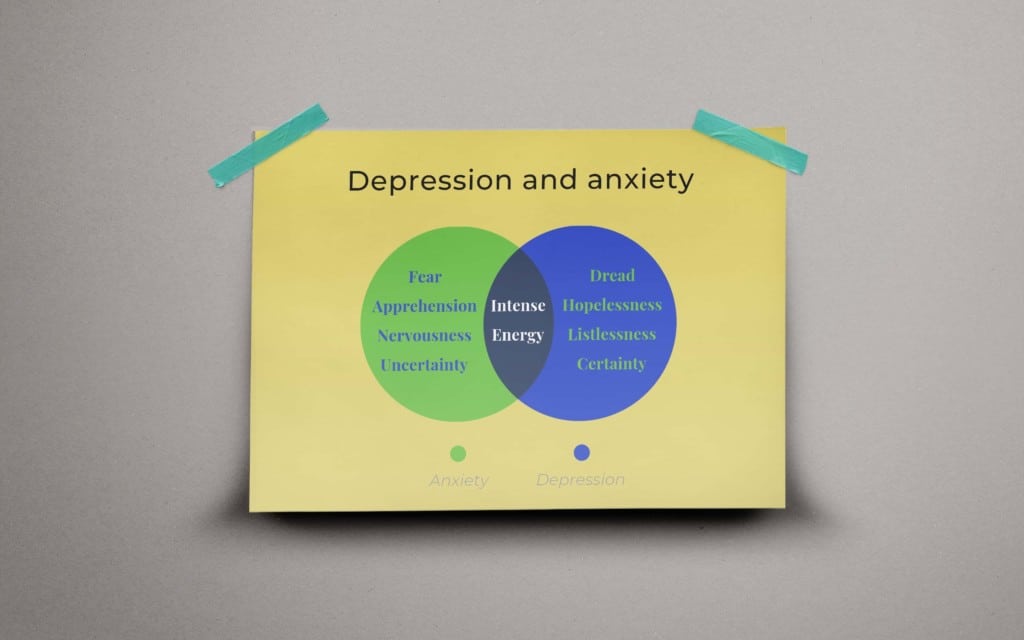
Can’t sleep due to nighttime anxiety? Here’s why:
Before you can track down the right treatment for sleep anxiety, you’ll first need to understand why you’re so anxious. The most common cause of sleep anxiety is an existing sleep disorder.
If you’ve spent a few nights tossing and turning, counting the shapes on your wallpaper, and glancing nervously at the clock, then you’re going to be exhausted.
The sleepier you get, the harder it is to deal with pre-existing feelings of nerves and worry. Things you would regularly brush off, like getting to bed ten minutes later than your usual routine, become vast sources of anxiety.
Anxiety at night often becomes a general sleep anxiety where you’re worried about a lack of sleep. You’re so concerned you’re not going to fall asleep on time, that you end up creating a self-fulfilling prophecy, where your mind is too active to switch-off.
The mechanisms behind sleep anxiety come from something researchers call “anticipatory anxiety.” You worry that you won’t be able to sleep based on your past experience.
This concern fires up your insular cortex and amygdala, mimicking the neural activity common in generalized anxiety disorder, PTSD, and other psychiatric conditions.
As your nervous system starts to pump out cortisol (the stress hormone), and adrenaline, it becomes increasingly difficult to go to sleep. The more you worry, the more you stay awake. The more you stay awake, the worse your nighttime anxiety becomes.
Common symptoms of sleep anxiety at night
So, what are the most likely sleep anxiety symptoms you’ll need to contend with?
Well, researchers from the University of Berkeley suggest that over-active emotions are the most common response. Your brain can’t cope with logical processing when its sleep-deprived. That means you think about emotionally-charged information out of context.
If you’ve ever burst into tears after a sleepless night because you put your sock on inside out, you’ll know what this is like. Most of the other symptoms of sleep anxiety are similar to the symptoms you’ll get from any anxiety disorder, such as:
- Restlessness and nervousness.
- Trouble concentrating.
- An impending sense of doom.
- Increased heart rate.
- Shortness of breath.
- Sweating, hot flashes, and chills.
- Gastrointestinal problems (vomiting and diarrhoea).
- Feelings of detachment.
- Lightheadedness or dizziness.
Though sleep anxiety symptoms can vary from one person to the next, one thing remains the same: you create an atmosphere that’s terrible for inducing sleep.
Unfortunately, sleep anxiety is becoming increasingly common in today’s fast-paced world. Many of us are struggling to sleep properly each night, and the less we sleep, the more we panic about or inability to drift off. In some cases, the problem gets so bad that you end up having an anxiety or “panic attack.”
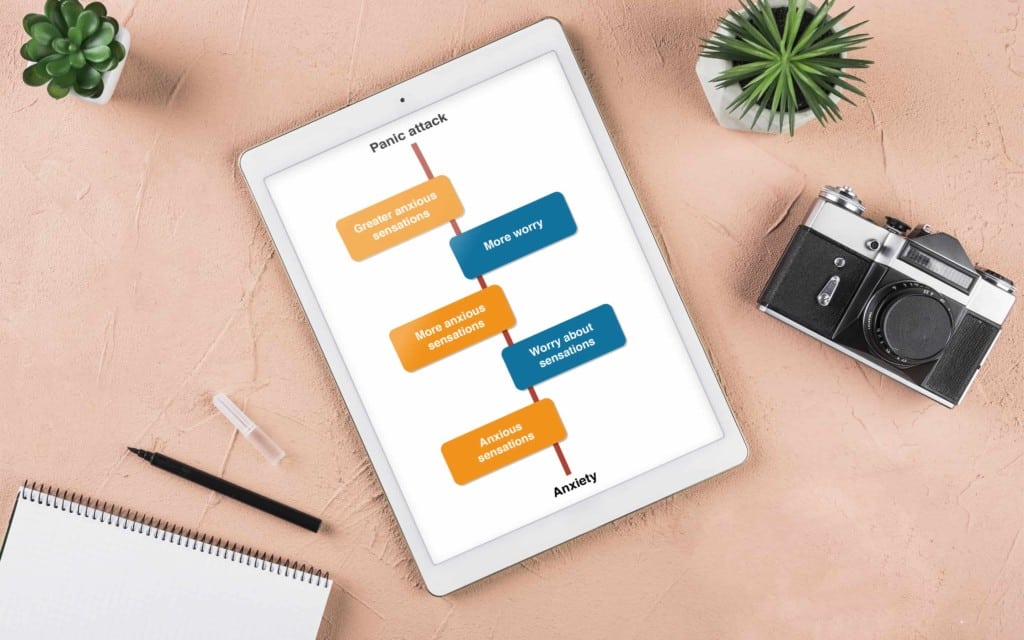
This attack initiates your fight or flight response in the nervous system, leading to the release of adrenaline — which prevents sleep.
What helps sleep anxiety? How to wind down
Sleep anxiety is a serious problem for many people because it starts a self-perpetuating cycle.
It’s hard to get out of the loop of worrying about sleep, then failing to sleep.
The good news is that there are ways you can reduce your risk of restless nights and groggy mornings. Some of the best treatment for anxiety at night even starts at home, with basic lifestyle changes that you can make yourself. For instance:
1. Adjust your morning routine
Your morning routine is crucial to good sleep hygiene. Waking up at the same time each day, exercising, and eating a nutritious breakfast will all help to keep your circadian rhythm in check. This means you’ll be more likely to get sleepy at night and fall asleep when you’re supposed to.
Just like you start working on your summer body in winter, working on your sleep hygiene in the morning will balance out your internal systems, from your stress hormones to your energy levels.
Some studies suggest that something as simple as skipping breakfast can increase your risk of poor sleep quality.
2. Give worry a time and a place
Even with sleep anxiety medication and treatment, it’s unlikely that you’ll eliminate worry from your life entirely. With that in mind, it’s better to give your anxiety a time and a place.
Early in the day, set some time aside where you can write down all the negative thoughts that are filling your mind.
Writing these items down and seeing them on paper will help you to sort through them rationally. You may even be able to come up with potential solutions to your problems that make you feel better about the issue at hand.
When you feel as though you’re taking control of the situations that scare you, it’s easier to feel more confident and powerful by the time you go to bed.
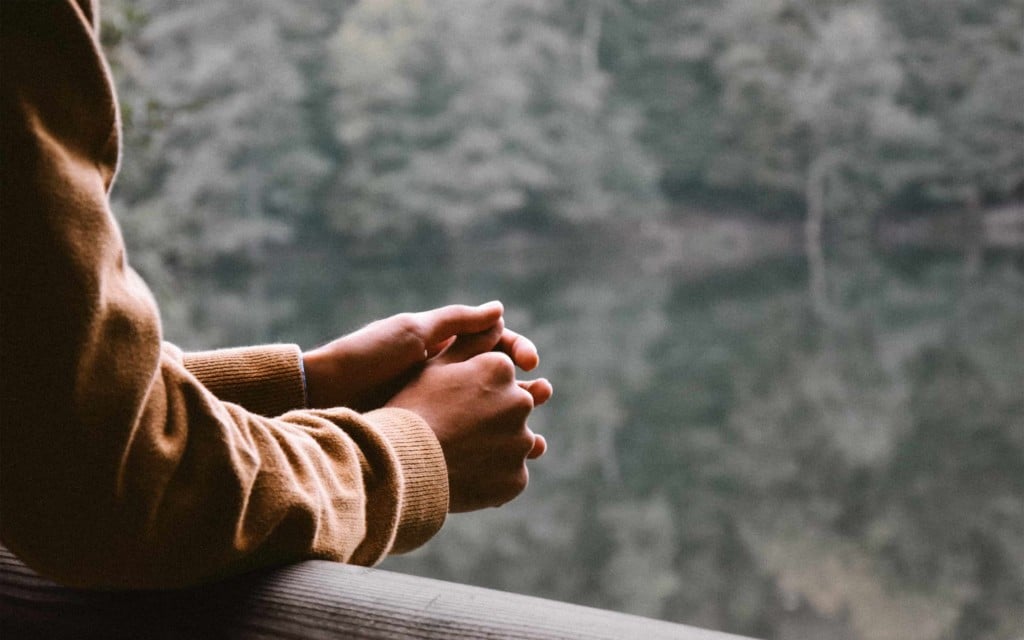
3. Exercise more often
Regular exercise is the key to treating insomnia, anxiety, depression, and many other conditions. If you wear yourself out early in the day, you’re more likely to fall asleep as soon as you settle into bed.
Of course, this requires a bit of extra planning. You shouldn’t be exercising too close to bedtime, as this can raise your adrenaline levels — just like a panic attack.
The Association for Anxiety And Depression in America recommend taking place in regular aerobic activity a few hours before bed to decrease tension levels, elevate your mood, and improve sleep. You can even exercise as soon as you wake up each day to prepare for the challenges ahead.
4. Don’t obsess over sleep
If you can’t sleep due to anxiety, the worst thing you can do is stay in bed staring at the clock. Instead, it’s better to get up and do something to take your mind off whatever is bothering you. Maybe you could read a book with some low lighting or listen to music that relaxes you.
Try downloading a meditation app on your phone and following the instructions to get your breathing in check. Once you feel sleepy, you can go back to bed and try again.

Treatment for sleep anxiety: Your options
Sleep anxiety or somniphopia is a genuine condition that sometimes requires support from a professional.
Importantly, like any ailment, it can take time to find the right approach to treatment for your nighttime anxiety. You and your doctor might need to explore a range of options.
Usually, the first step is addressing any underlying conditions that may be causing your insomnia or anxiety. Once physical health issues are ruled out, your doctor will often recommend a psychological approach to sleep anxiety treatment.
Psychotherapy for fear of sleep
Psychotherapy is one of the best treatments for sleep anxiety because it helps to address the underlying issues that are causing your worry. Your doctor may recommend using cognitive behavioural therapy to adjust your thought patterns and elevate your mood.
The ADAA suggests that it can take up to 16 weeks to start seeing results with CBT — so make sure you’re patient.
Meditation to relieve anxiety at night
You can also combine things like CBT with meditation. More than just a sleep anxiety treatment, meditation is becoming a standard solution for managing stress, depression, and other mental conditions.
Studies are continually appearing to back up the effectiveness of meditation as a treatment option. Brain imaging scans indicate that meditation improves your brain functioning for the better, eliminating activity that can keep the mind awake at night.
One study performed by a neuroscientist in Massachusetts found that after eight weeks of meditation, subjects physically altered their brains.
The people in the study grew the areas in their brain associated with emotional regulation, memory, learning, and compassion. What’s more, the part of the brain associated with stress, fear, and anxiety (the amygdala) had shrunk.
Meditation can be as simple as using grounding techniques each night to concentrate on your breathing and prevent your mind from drifting to more anxious thoughts.
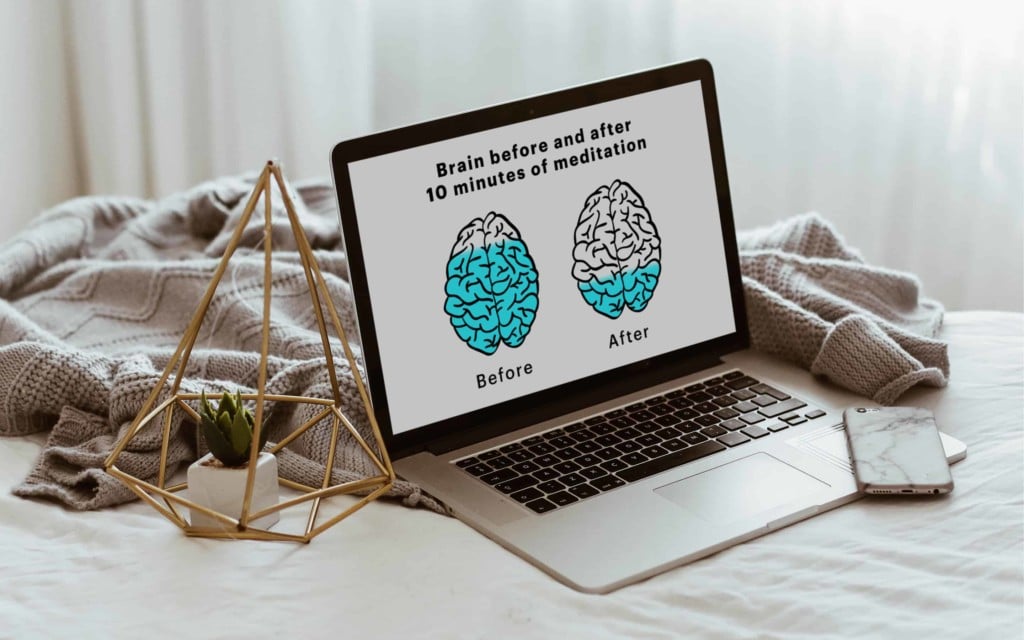
Healthy sleep habits helps anxiety
Most doctors will also recommend using sleep hygiene techniques as part of your treatment for sleep anxiety. This simply means ensuring that you’re preparing yourself properly for sleep each night.
You might start using a nightly routine where you take a bath before you go to bed and drink a cup of tea to calm your nerves. Other aspects of sleep hygiene include:
- Using a consistent schedule to keep your circadian clock in check.
- Keeping your bedroom cool and comfortable to soothe your body for sleep.
- Eliminating noise and distraction from your bedroom.
- Avoiding exposure to blue light before bed.
Sleep anxiety medication: drugs for sleep and anxiety
After a while, sleep anxiety symptoms can become more than just an annoyance.
If a psychological sleep anxiety treatment isn’t working for you, then your doctor may need to consider other options to help you get the rest that you need. After all, lack of sleep can be hazardous to your health.
While there isn’t any specific medication for sleep anxiety on the market, there are options for generalized anxiety disorders that your doctor may suggest, such as:
- Antidepressants: Certain antidepressants like trazodone and mirtazapine are effective at treating anxiety and insomnia.
- Benzodiazepines: These are a form of sleeping pill that stays in your system for a while; they can reduce the risk of night terrors and sleepwalking but might also cause you to feel groggy through the day. Options include triazolam and emazepam. These drugs can cause dependence.
- Doxepine: This is a medication approved for people who don’t have problems getting to sleep, but struggle to stay asleep. It works by blocking histamine receptors.
- Ramelteon: This medication targets the sleep-wake cycle and is intended for people who have trouble falling asleep. It’s less likely to cause dependence than standard benzodiazepines.
- Zolpidem: These medications help you to get to sleep, but they might not keep you asleep for long. The FDA warns against driving when using these tablets, because they stay in your body for a long time and can make you drowsy through the day.
- Melatonin: Melatonin mimics your own hormone produced by the pineal gland. It is sleep inducing and some people find effects of melatonin for anxiety at night.
- Over-the-counter medications: Basic sleeping pills that you can get over the counter are usually antihistamines. There isn’t a lot of proof that these work well for insomnia, but they will help some.
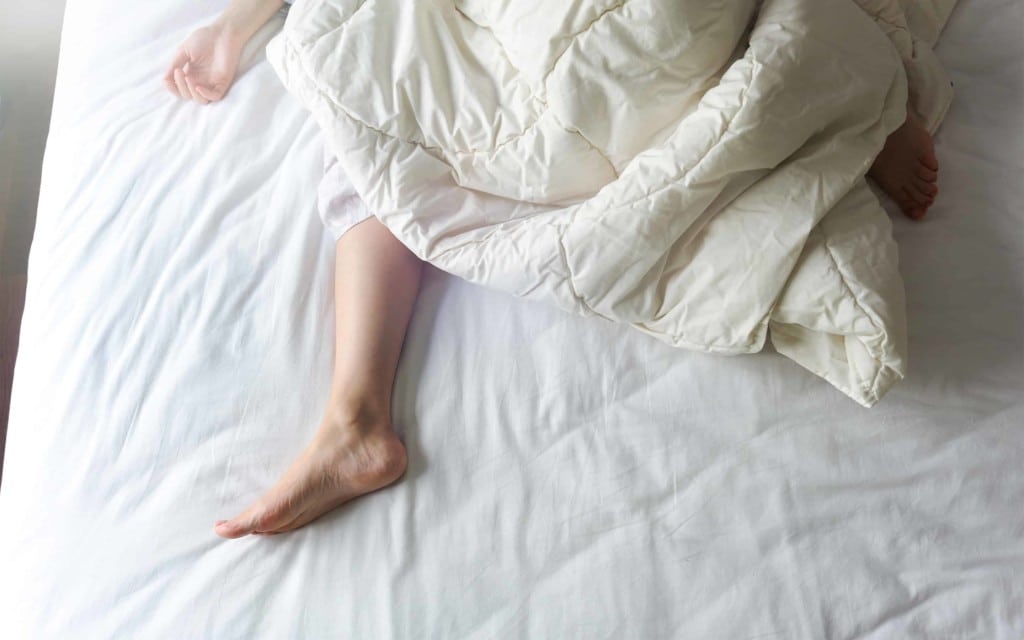
Sleep anxiety treatment: Alternative options
As you may have noticed, sleep anxiety medication isn’t an easy thing to prescribe.
Doctors need to balance a patient’s need for sleep with the possibility of some significant side effects like drowsiness, addiction, and trouble concentrating.
With that in mind, you may want to swap your medication for sleep anxiety with an alternative option. Although research into botanical and herbal solutions for anxiety is limited, we are beginning to learn more about what might be possible with the right herbal substances.
One systematic review in 2010 suggests that herbal supplementation and nutritional support may be an effective treatment for sleep anxiety.
Anything from a cup of chamomile tea to valerian root could potentially improve your sleeping pattern. However, the substance with probably the most research for both sleep issues and anxiety is passionflower.
There’s good evidence that passionflower can reduce sleep anxiety symptoms, particularly when it’s combined with L-arginine and L-lysine.
In one clinical study, scientists found that this substance has similar results to anti-anxiety medications in mice.
Additionally, reviews have found passionflower to have significant calming and sedative effects. Research from 2017 in mice suggests that passionflower may have a substantial impact on sleeping patterns, improving deep, slow-wave sleep, and reducing REM sleep.
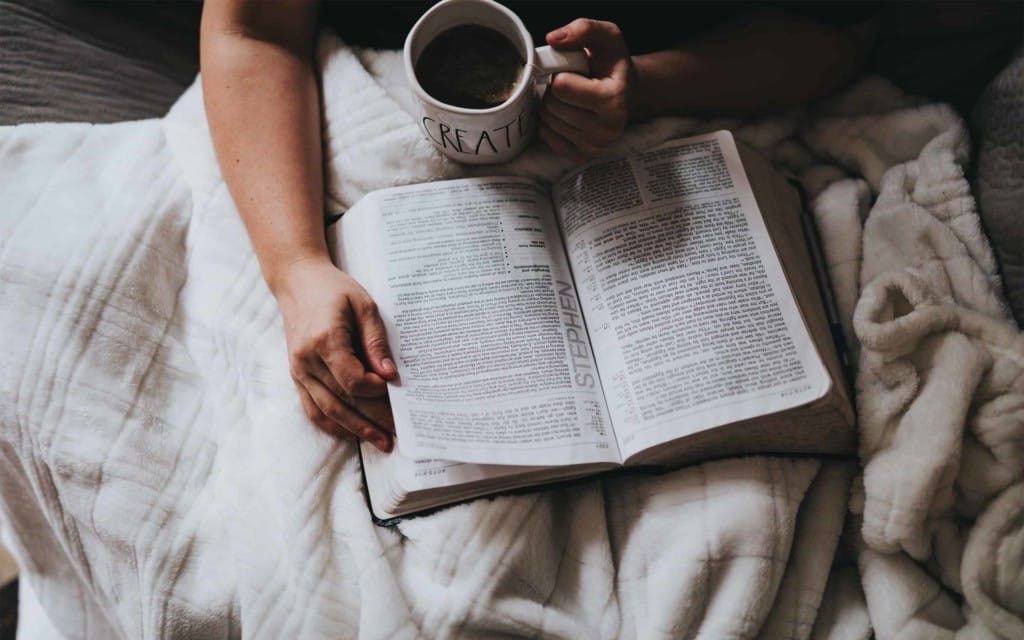
How do I stop anxiety attacks at night?
If your sleep anxiety symptoms are becoming so significant that they’re causing panic attacks, then you may need a quick way to counteract these symptoms.
Panic attacks happen when the adrenal glands in your body release adrenaline into your system, getting your body ready for the “fight or flight response.”
Your mind believes that you’re exposed to some danger, whether it’s real or imagined, which means your entire body goes into over-drive to protect you from the threat.
If you can’t sleep due to anxiety, and the issue is causing a panic attack:
Start with some deep breathing
Purposeful deep-breathing exercises inform your body and mind that there’s no real danger. Your slow, belly-breathing using the diaphragm activates the parasympathetic nervous system that relaxes the body. Practice deep breathing — even if that means downloading a meditation app to help you.
Use purposeful, mindful relaxation
While you breathe deeply in and out, work on calming your body. Lie on your back and bring your attention away from whatever’s worrying you to focus on your body.
Concentrate on gently tensing then relaxing each of your muscle groups, beginning at the bottom with your feet and working up to your jaw and forehead.
Embrace the power of visualization
Visualizing positive events and things that make you happy will help to connect your mind to positive emotions.
This will help you to replace your feelings of panic with something more relaxing. If you need help, try flicking through pictures that make you happy or listening to some music that can alter your mood.
If you’re concerned that your anxiety attacks at night are becoming increasingly common, you can take steps to reduce them by taking positive actions during the day.
For instance, speak to a therapist regularly to address the things that trigger your anxiety and avoid stressful events and situations.

Other options for anxiety at night
A treatment for sleep anxiety isn’t a one-size-fits-all thing. You’ll need to work with your doctor to figure out what might work best for your situation.
Some people will be able to overcome sleep anxiety using basic psychological treatment options like CBT and meditation. Other people might need to get some extra help with medication or supplements.
Usually, the best treatment for sleep anxiety will begin with addressing your sleep cycle and the steps that you need to take to improve your schedule.
Get your sleep hygiene right, and the rest will usually follow. However, there are also health conditions and emotional issues that can make sleep anxiety much harder to manage for some people. That’s why it’s so important to get a personalised treatment strategy laid out.
Remember to speak to a medical expert if you’re concerned about your sleep issues and stay tuned on siestio.com for more guidance and advice.
Here are some additional resources to look into if you need extra help:
- An article on panic attacks from the eMedicine health company.
- A guide on how to stop panic attacks and overcome feelings of severe distress.
- Insight from the ADAA sleep disorder team on the link between anxiety and sleep, and how you can fall asleep with anxiety.
- Information from the National Institute of Mental Health’s website on the latest research into anxiety and insomnia.
- Guide to anxiety and panic attacks and resources in America for people who want help finding a psychologist.
- FAQ and support in finding a psychologist for anxiety issues in the UK.
- The Anxiety Community — a place that offers self-help and support for people who suffer from anxiety.
- Anxiety Social Net — online support and community guidance for people with anxiety disorders and mental health issues.
Clinical studies on anxiety and sleep:
Sleep and mood – Harvard Medical School
Sleep and mental health – Harvard Medical School
Adults: Anxiety Disorders – National Institute of Mental Health
Anxiety Disorders – CenterWatch
Siestio. Sleep Matters.
Medical disclaimer
You must not rely on the information provided on our website as an alternative to medical advice from your doctor or other healthcare professionals. For more information read our full disclaimer here.







